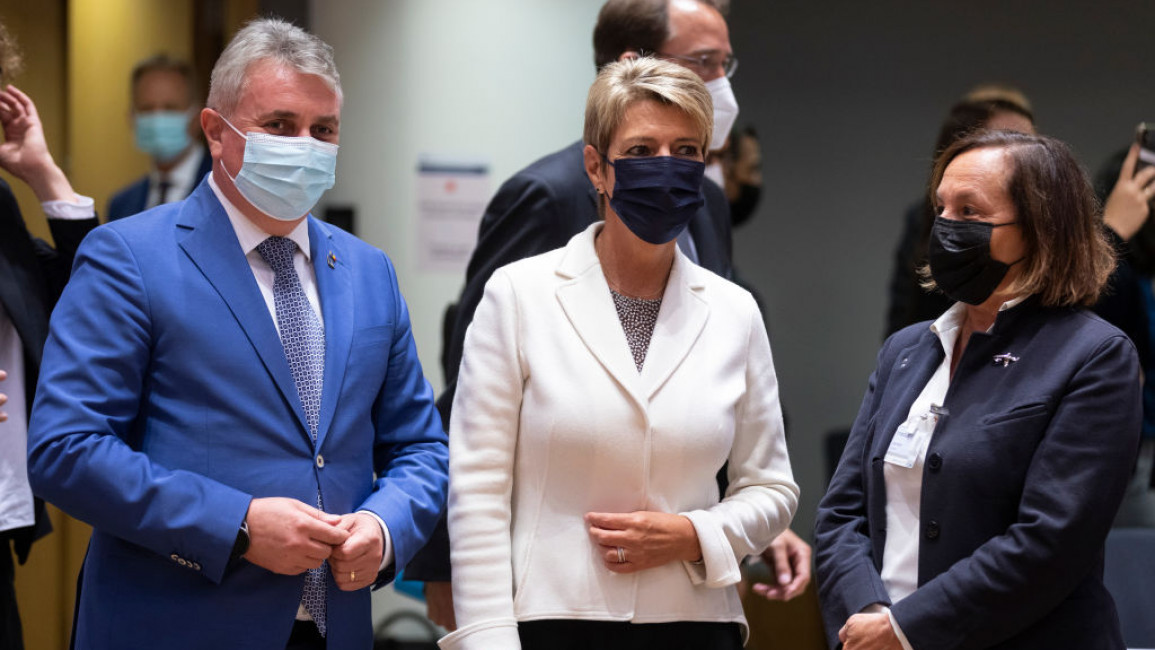Fears of Afghan exodus boost pressure on EU ministers
EU ministers debated Tuesday how to prevent or contain a feared influx of Afghans fleeing the Taliban, with Germany leading a call for migrants to stay in the region.
At the meeting, the ministers were expected to approve a declaration that includes support for countries in the region to take in refugees from Afghanistan, which has been in Taliban hands since mid-August.
The return of the hardline Islamist group to power has plunged the future of many Afghans into uncertainty and sparked concern that millions may seek refuge in neighbouring countries and Europe.
The goal of European refugee policy must be "that people stay close to home," German Interior Minister Horst Seehofer said, as he arrived for talks in Brussels.
In 2015, Germany took in more than a million migrants fleeing conflict, mainly in Syria, in a decision that angered some of its EU partners, who were caught off guard.
On Tuesday, Seehofer urged the European Commission -- the EU executive -- to present an action plan "very quickly", making support for Afghanistan's neighbours, such as Pakistan and Tajikistan, dependent on their willingness to accept and care for refugees.
This would be based on the EU-Turkey model in which Ankara inked a deal with Brussels after the 2015 migration crisis to stem the flow of migrants to Europe by hosting arrivals in return for some incentives including financial assistance.
"The Turkish-Syrian model has been a good model for refugees ... France will ask to extend this model (to Afghanistan)," French Interior Minister Gerald Darmanin said.
For now, however, he added "there is no massive flow of Afghans at the European borders as was experienced in 2015. But it may happen in the coming weeks or months depending on the situation."
Luxembourg's Foreign Minister Jean Asselborn criticised some member states, including Austria and Slovenia, that "are doing everything they can just to prevent refugees from coming to Europe."
"We cannot accept them all, it is true, but at least a certain number," he added.
Criticism also came from human rights organisations, with Oxfam accusing EU countries of "washing their hands of their international obligation to offer refuge to those seeking safety and pushing it on to other countries."
In the draft statement seen by AFP, member states say they are "determined to act jointly to prevent the return of large-scale illegal and uncontrolled migration movements."
Member states are also concerned about the risk of terrorism, promising to "do their utmost to ensure that the situation in Afghanistan does not lead to new security risks for EU citizens."
As interior ministers, "our main responsibility is to protect EU citizens from terrorist attacks," said Slovenian Minister Ales Hojs, whose country holds the rotating EU presidency.
"You see what is happening all the time in Kabul, we cannot be sure that something like this cannot happen in the future in Europe," he said.



